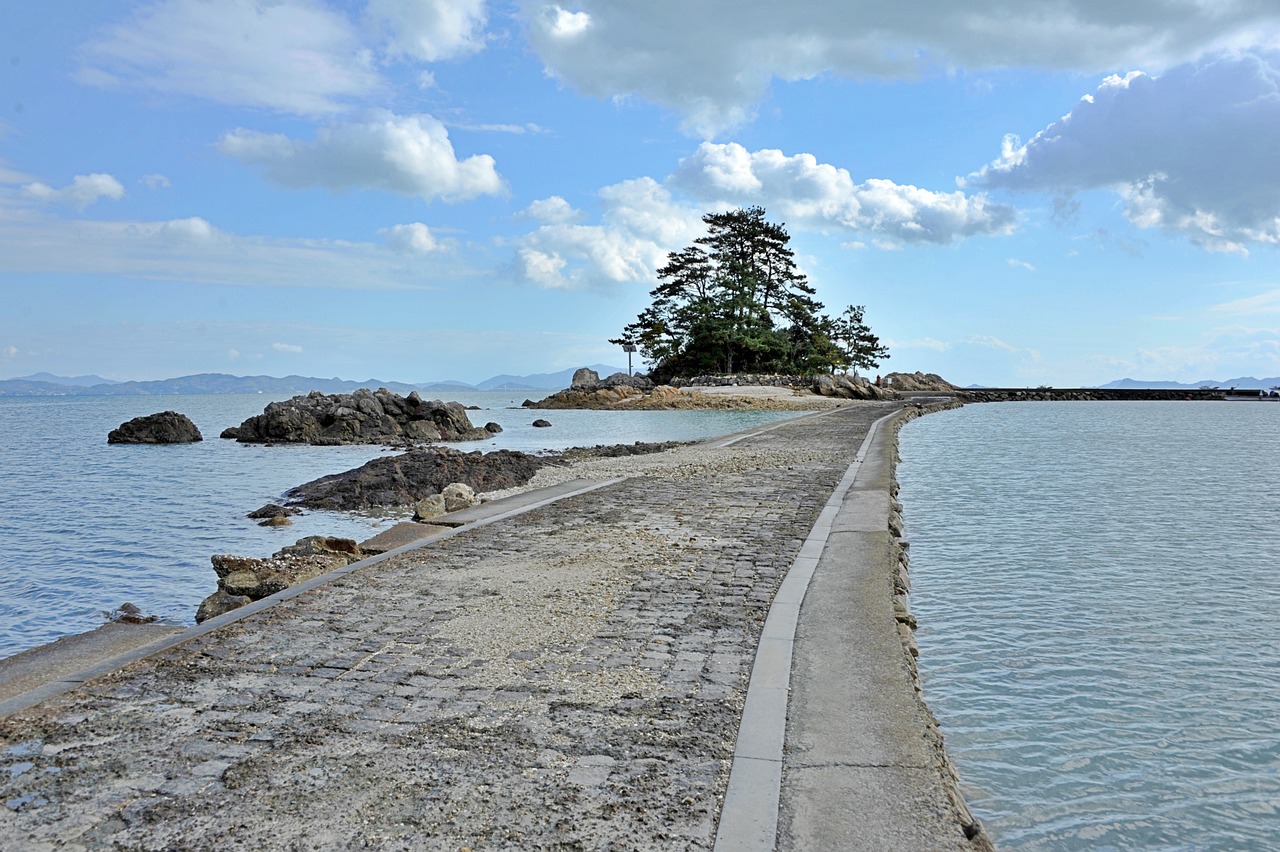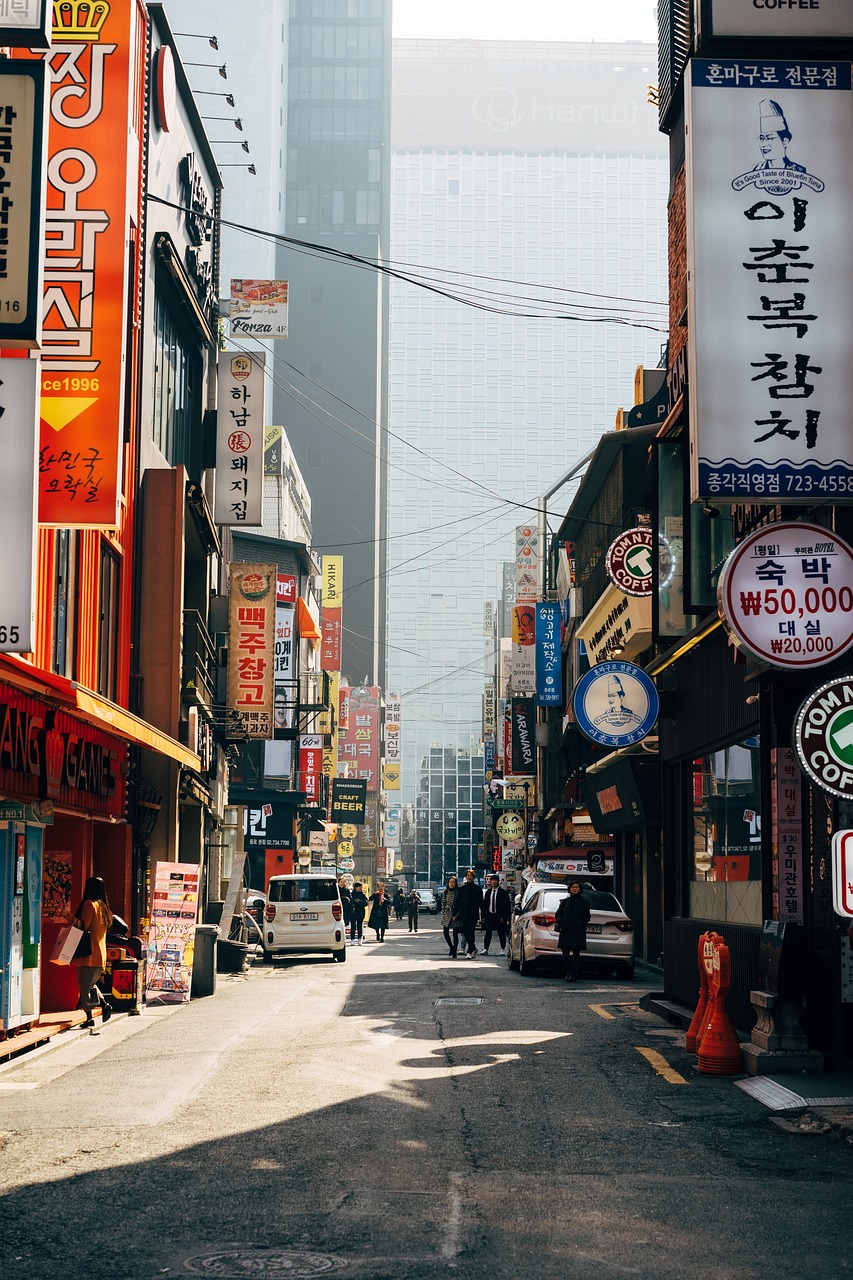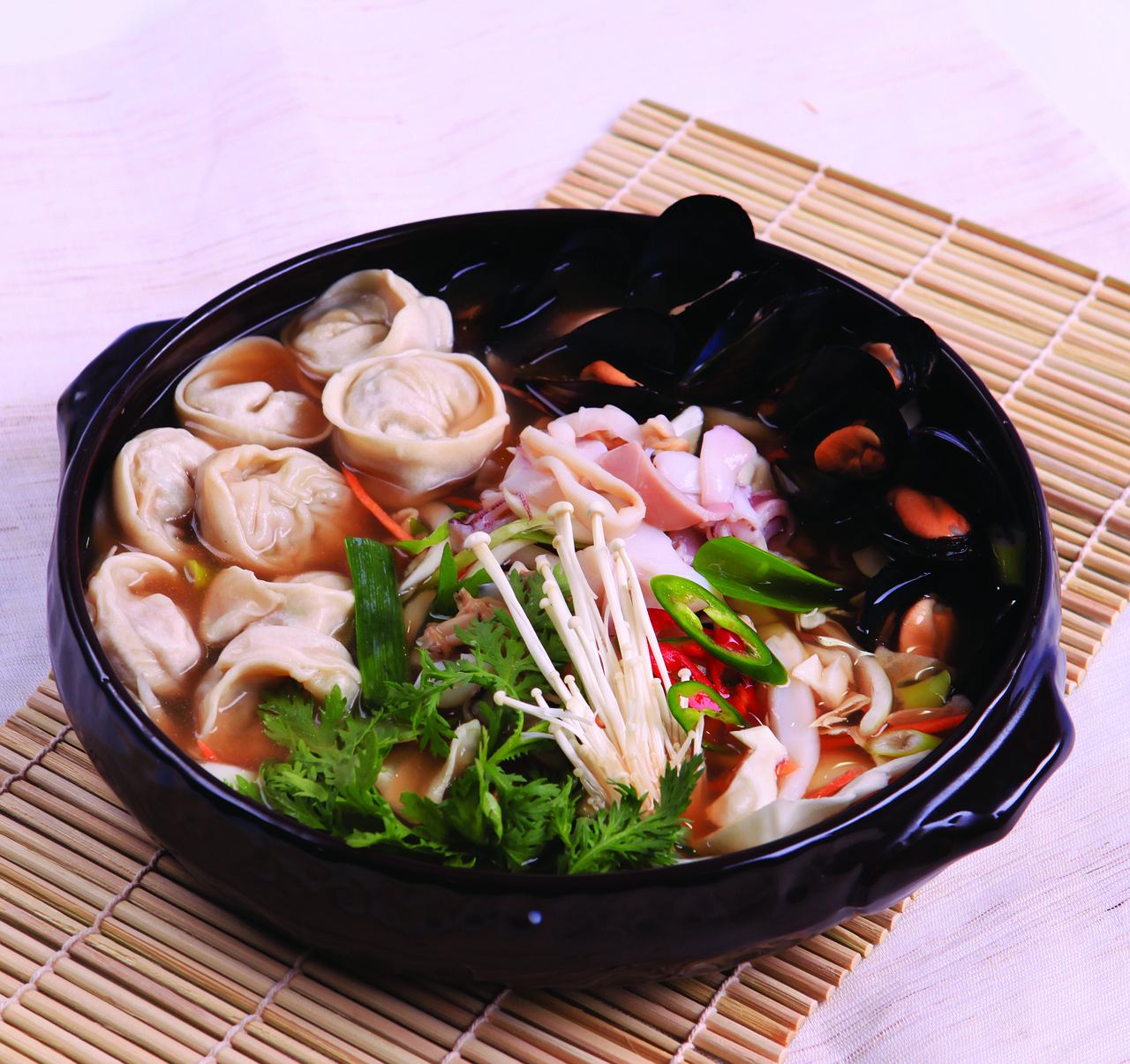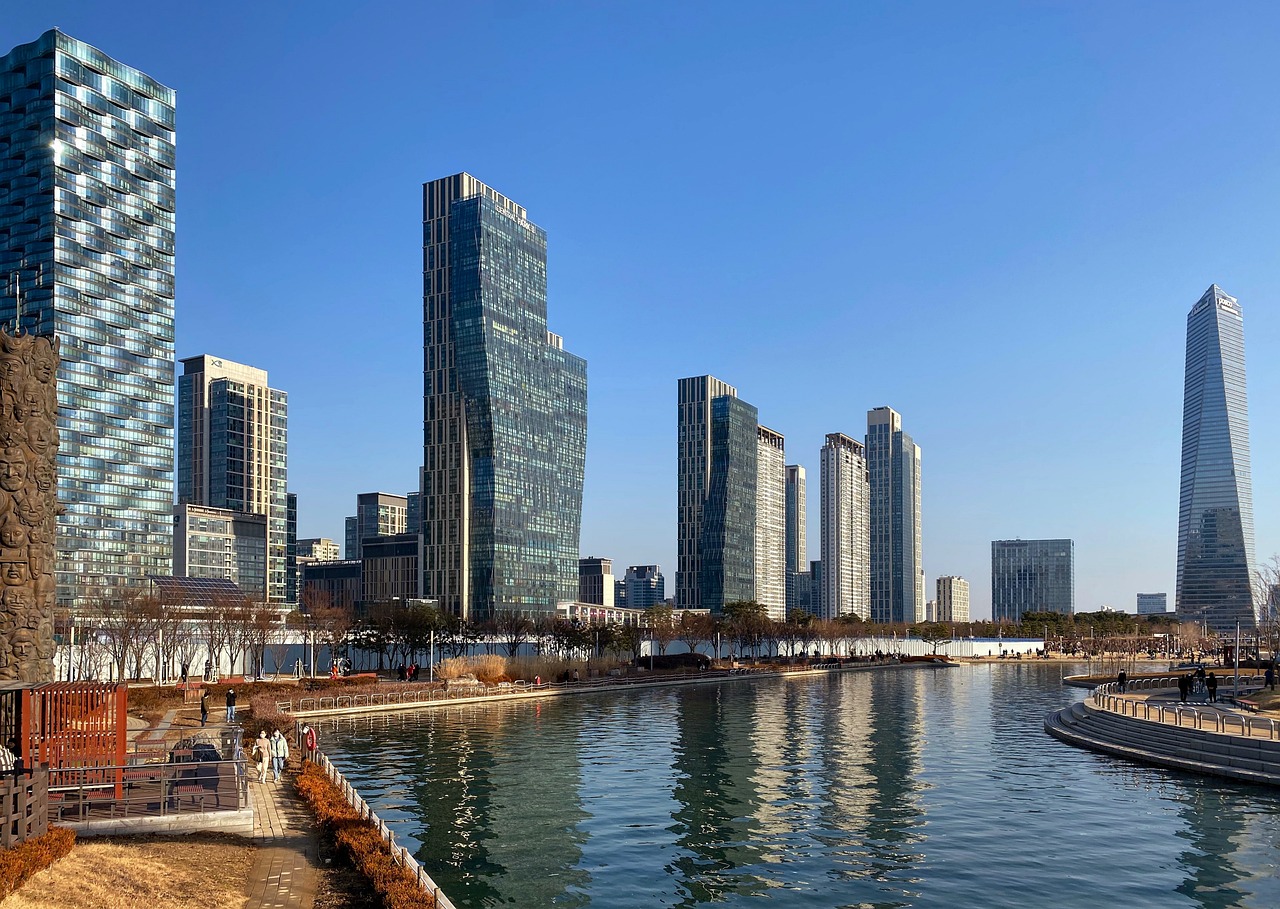South Korea Video
Introduction
South Korea, officially known as the Republic of Korea, is a vibrant and technologically advanced country located in East Asia. With a rich history, stunning landscapes, and a thriving economy, South Korea has become an attractive destination for digital nomads and expats looking for new experiences and opportunities. In this article, we will explore various aspects of South Korea that make it an ideal place for digital nomads and expats to live and work.

South Korea For Digital Nomads
South Korea offers a range of benefits for digital nomads, including its advanced infrastructure, fast internet speeds, and a supportive startup ecosystem. The country is known for its cutting-edge technology and innovation, making it an ideal place for digital entrepreneurs and remote workers. Additionally, South Korea’s convenient transportation system and extensive public Wi-Fi coverage make it easy for digital nomads to stay connected and productive while exploring the country.
- Startup Hubs: South Korea has several vibrant startup hubs, such as Seoul and Busan, which offer coworking spaces, networking events, and support for entrepreneurs.
- Fast Internet Speeds: South Korea is renowned for its high-speed internet infrastructure, with one of the fastest average connection speeds in the world.
- Supportive Government Policies: The South Korean government has implemented various initiatives to support the growth of the startup ecosystem and attract foreign entrepreneurs.
- Cultural Experiences: Digital nomads can immerse themselves in South Korea’s unique culture, from traditional temples and palaces to modern K-pop and fashion.

South Korea Climate
South Korea experiences four distinct seasons, each offering its own charm and activities. The climate varies from humid continental in the north to humid subtropical in the south. Here’s a breakdown of the seasons:
- Spring (March to May): Spring in South Korea is a beautiful time with cherry blossoms blooming across the country. The weather is mild, and it’s a great time to explore outdoor attractions.
- Summer (June to August): Summers in South Korea are hot and humid, with occasional rainfall. It’s a popular time for beach trips and outdoor festivals.
- Autumn (September to November): Autumn brings cooler temperatures and stunning foliage, making it a picturesque time to visit South Korea. It’s also a great time for hiking and outdoor activities.
- Winter (December to February): Winters in South Korea can be cold, especially in the northern regions. However, it’s a fantastic time for winter sports and enjoying hot springs.

South Korea Expat Communities
South Korea is home to a diverse expat community, with people from various countries living and working in different cities across the country. Expats in South Korea often find support and a sense of community through various expat groups and organizations. Some popular expat communities in South Korea include:
- Seoul Global Center: Located in Seoul, the Seoul Global Center provides support and resources for expats living in the city. They offer services such as Korean language classes, counseling, and networking events.
- Busan International Foreigners Association (BIFA): BIFA is a community organization in Busan that aims to connect and support expats living in the city. They organize regular events and provide information on various aspects of life in Busan.
- Daegu Expats: Daegu Expats is an online community for expats living in Daegu. They have an active online forum where expats can ask questions, share information, and connect with other expats in the area.
- Gwangju International Center (GIC): GIC is a resource center for international residents in Gwangju. They offer a wide range of services, including Korean language classes, cultural programs, and legal advice.

Living As An Expat In South Korea
Living as an expat in South Korea offers a unique blend of traditional and modern experiences. From bustling cities to serene countryside, South Korea has something for everyone. Here are some key aspects to consider when living as an expat in South Korea:
- Housing: Expats in South Korea can choose from a variety of housing options, including apartments, villas, and hanok (traditional Korean houses).
- Healthcare: South Korea has a high-quality healthcare system, with both public and private hospitals available. Expats are required to have health insurance, and many employers provide coverage.
- Education: South Korea has excellent educational institutions, making it an attractive destination for expat families. International schools are available for expat children.
- Language: While learning Korean is not mandatory, knowing some basic phrases can greatly enhance the expat experience and help with daily interactions.
- Cultural Etiquette: South Korea has its own unique cultural customs and etiquette. It’s important for expats to familiarize themselves with these customs to show respect and avoid misunderstandings.
South Korea Cost Of Living
The cost of living in South Korea can vary depending on the city and lifestyle choices. Generally, major cities like Seoul and Busan tend to have higher living costs compared to smaller towns. Here’s an overview of the cost of living in South Korea:
- Accommodation: Rent prices in South Korea can be high, especially in popular areas of Seoul. However, there are also more affordable options available, such as shared apartments or officetels.
- Transportation: Public transportation in South Korea is efficient and affordable. The cost of a monthly transportation pass varies depending on the city, but it is generally reasonable.
- Food: Eating out in South Korea can be affordable, especially when enjoying local street food or traditional Korean restaurants. Cooking at home can also be budget-friendly, thanks to the availability of fresh produce and affordable grocery stores.
- Entertainment: South Korea offers a wide range of entertainment options, from affordable movie tickets to vibrant nightlife. However, some activities, such as visiting amusement parks or attending concerts, can be more expensive.
South Korea Visas For Digital Nomads
South Korea has specific visa options for digital nomads and remote workers. Here are some visa options available for digital nomads in South Korea:
- H-1 Visa: The H-1 visa is designed for individuals engaged in specialized or technical work. Digital nomads with specific skills or expertise may be eligible for this visa.
- D-8 Visa: The D-8 visa is for foreign nationals who wish to establish or operate a business in South Korea. Digital nomads looking to start their own business in South Korea may be eligible for this visa.
- F-2 Visa: The F-2 visa is for foreigners who have been legally residing in South Korea for a certain period. Digital nomads who have established a long-term presence in South Korea may be eligible for this visa.
- Working Holiday Visa: South Korea has working holiday agreements with several countries, allowing young individuals to work and travel in South Korea for a specified period.
South Korea Transportation
South Korea has a well-developed transportation system that makes it easy to travel within the country. Here are some key transportation options in South Korea:
- Subway: Major cities in South Korea, such as Seoul and Busan, have extensive subway networks that are efficient and convenient for daily commuting.
- Buses: Buses are a popular mode of transportation in South Korea, with both intercity and intracity routes available. Express buses are a convenient option for traveling between cities.
- Trains: South Korea’s train system, operated by the Korea Railroad Corporation (KORAIL), connects major cities and offers a comfortable and efficient way to travel across the country.
- Taxis: Taxis are readily available in South Korea and can be hailed on the street or booked through mobile apps. They are a convenient option for shorter trips or traveling with luggage.
South Korea Airports
South Korea is served by several international airports, making it easy for digital nomads and expats to travel to and from the country. Here are some of the major airports in South Korea:
- Incheon International Airport (ICN): Located near Seoul, Incheon International Airport is one of the busiest airports in the world and serves as a major hub for international flights.
- Gimpo International Airport (GMP): Gimpo International Airport, also located near Seoul, primarily handles domestic flights and some international flights to neighboring countries.
- Busan Gimhae International Airport (PUS): Busan Gimhae International Airport serves the city of Busan and offers both domestic and international flights.
- Jeju International Airport (CJU): Jeju International Airport is located on Jeju Island, a popular tourist destination known for its natural beauty. It offers domestic and international flights.
Facts About South Korea
Here are some interesting facts about South Korea:
- Capital: The capital of South Korea is Seoul, which is also the largest city in the country.
- Language: The official language of South Korea is Korean. English is widely taught and spoken in major cities.
- Technology Hub: South Korea is known for its technological advancements and is home to global tech giants such as Samsung and LG.
- Korean Cuisine: Korean cuisine is famous worldwide, with dishes like kimchi, bibimbap, and bulgogi gaining international popularity.
- Traditional Hanbok: The hanbok is the traditional Korean dress, often worn during special occasions and festivals.
Fun Things To Do In South Korea
South Korea offers a wide range of activities and attractions for digital nomads and expats. Here are some fun things to do in South Korea:
- Visit Gyeongbokgung Palace: Explore the grandeur of Gyeongbokgung Palace, the largest royal palace in Seoul, and witness the changing of the guard ceremony.
- Hike in Seoraksan National Park: Discover the natural beauty of Seoraksan National Park, known for its stunning mountain scenery and hiking trails.
- Explore Jeju Island: Visit Jeju Island, a volcanic island with picturesque beaches, waterfalls, and unique natural formations like the Seongsan Ilchulbong Peak.
- Experience Korean Traditional Tea Culture: Participate in a traditional tea ceremony and learn about the art of tea in a serene teahouse.
- Enjoy Korean BBQ: Indulge in a delicious Korean BBQ feast, where you can grill various meats right at your table.
Popular South Korea Tourist Attractions
South Korea is home to numerous popular tourist attractions that showcase its rich history, culture, and natural beauty. Here are some must-visit attractions in South Korea:
- Bukchon Hanok Village: Wander through the traditional houses of Bukchon Hanok Village in Seoul and experience traditional Korean architecture.
- Everland: Enjoy thrilling rides and entertainment at Everland, South Korea’s largest theme park located near Seoul.
- Haeundae Beach: Relax on the sandy shores of Haeundae Beach in Busan, one of South Korea’s most famous and popular beaches.
- Gyeongju Historic Areas: Explore the ancient capital of the Silla Kingdom in Gyeongju and visit UNESCO World Heritage sites like Bulguksa Temple and Seokguram Grotto.
- Jagalchi Fish Market: Experience the vibrant atmosphere of Jagalchi Fish Market in Busan, where you can find a wide variety of fresh seafood.
South Korea Cities
South Korea is home to several vibrant cities, each with its own unique charm and attractions. Here are some of the most popular cities in South Korea:
- Seoul: The capital city of South Korea, Seoul is a bustling metropolis known for its modern architecture, shopping districts, and vibrant nightlife.
- Busan: Located on the southeastern coast, Busan offers beautiful beaches, bustling markets, and a lively food scene.
- Incheon: Incheon is a major port city known for its modern developments, including Incheon International Airport and Songdo International Business District.
- Daegu: Daegu is a vibrant city known for its traditional markets, rich history, and annual colorful lantern festival.
- Gwangju: Gwangju is a cultural hub with a thriving arts scene, historical sites, and vibrant street markets.

South Korea Internet Speed and Accessibility
South Korea is renowned for its fast and reliable internet infrastructure. The country consistently ranks among the top countries in terms of internet speed and accessibility. Here are some key points about internet in South Korea:
- Internet Speed: South Korea has one of the fastest average internet speeds in the world, with speeds reaching up to 1 Gbps in certain areas.
- Public Wi-Fi: Free public Wi-Fi is widely available in South Korea, with many cafes, restaurants, and public spaces offering high-speed internet access.
- Internet Cafes (PC Bangs): PC Bangs are popular in South Korea and offer affordable internet access, gaming facilities, and a comfortable workspace for digital nomads.
- Mobile Internet: South Korea has a well-developed mobile network, providing fast and reliable internet connectivity throughout the country.
South Korea Accommodation
South Korea offers a variety of accommodation options to suit different preferences and budgets. Whether you prefer a modern apartment in the heart of the city or a traditional hanok in a peaceful neighborhood, there’s something for everyone. Here are some popular types of accommodation in South Korea:
- Hotels: South Korea has a wide range of hotels, from luxury international chains to budget-friendly options. Popular hotel chains include Lotte Hotels, Shilla Hotels, and Marriott.
- Vacation Rentals: Vacation rentals, such as holiday homes or villas, are a popular choice for tourists and long-term visitors. Platforms like Airbnb offer a variety of options across the country.
- Apartment Rentals: Apartments, both furnished and unfurnished, are widely available in South Korea. Real estate agents and online platforms can help in finding suitable options.
- Guesthouses and Hostels: Guesthouses and hostels are budget-friendly options for travelers and digital nomads looking for a more social and communal living experience.
Popular South Korea Hotels
South Korea is home to numerous hotels that cater to different budgets and preferences. Here are some popular hotels in South Korea:
- Shilla Stay: Shilla Stay is a popular hotel chain in South Korea, offering comfortable rooms and convenient locations in major cities.
- Grand Hyatt Seoul: Located in the heart of Seoul, Grand Hyatt Seoul offers luxurious accommodations, stunning city views, and world-class amenities.
- Lotte Hotel Seoul: Lotte Hotel Seoul is a renowned five-star hotel known for its elegant rooms, excellent dining options, and convenient location.
- Novotel Ambassador Seoul Dongdaemun Hotels & Residences: Novotel Ambassador Seoul Dongdaemun is a stylish hotel located in the vibrant Dongdaemun area, offering modern rooms and easy access to shopping and entertainment.
Popular South Korea Vacation Rentals
Vacation rentals provide a unique and personalized accommodation experience in South Korea. Here are some popular vacation rental platforms and options:
- Airbnb: Airbnb offers a wide range of vacation rentals in South Korea, from cozy apartments to traditional hanoks.
- Booking.com: Booking.com also features vacation rentals in South Korea, allowing travelers to find suitable accommodations based on their preferences.
- Hanok Stays: Hanok stays offer a traditional Korean experience, allowing guests to stay in beautifully restored traditional houses.
- Seaside Villas: South Korea’s coastal areas offer stunning seaside villas for a relaxing and scenic vacation experience.
Popular South Korea Apartment Rentals
South Korea has a wide range of apartments available for rent, catering to different budgets and preferences. Here are some popular online platforms and resources for finding apartment rentals in South Korea:
- Real Estate Agencies: Local real estate agencies can help in finding suitable apartments for rent in South Korea. They have listings for both long-term and short-term rentals.
- Online Platforms: Websites like Zigbang, Dabang, and Seoul Homes offer comprehensive listings of apartments for rent in South Korea.
- Facebook Groups: Facebook groups dedicated to housing in South Korea often have posts from landlords and tenants looking for apartment rentals.
- Word of Mouth: Networking with locals, expats, and colleagues can sometimes lead to apartment rental opportunities.
South Korea Food & Drink
South Korea is renowned for its delicious cuisine, which offers a wide variety of flavors and dishes. Here’s a glimpse into the food and drink scene in South Korea:
- Korean BBQ: Korean BBQ is a must-try experience in South Korea, where you can grill various meats at your table and enjoy them with an array of side dishes.
- Bibimbap: Bibimbap is a popular Korean dish consisting of mixed rice, vegetables, meat, and a spicy sauce.
- Kimchi: Kimchi is a traditional Korean side dish made of fermented vegetables, most commonly cabbage, and is served with almost every meal.
- Bingsu: Bingsu is a popular Korean dessert made of shaved ice topped with various sweet toppings, such as red bean paste, fruit, or condensed milk.
- Soju: Soju is a clear distilled liquor that is often enjoyed with meals or during social gatherings. It is a popular alcoholic beverage in South Korea.

South Korea Grocery Stores
Grocery shopping in South Korea is convenient, with a variety of supermarket chains and local markets available throughout the country. Here are some popular grocery store chains in South Korea:
- E-Mart: E-Mart is one of the largest supermarket chains in South Korea, offering a wide range of products, including fresh produce, groceries, and household items.
- Lottemart: Lottemart is another popular supermarket chain that offers a diverse selection of products, including international brands.
- Homeplus: Homeplus is a well-known supermarket chain in South Korea, offering a range of groceries, household items, and electronics.
- Local Markets: Local markets, such as Gwangjang Market in Seoul or Jagalchi Market in Busan, are great places to experience the vibrant atmosphere and find fresh produce, street food, and local specialties.
Conclusion
South Korea is a captivating destination for digital nomads and expats, offering a perfect blend of modernity and tradition. With its advanced infrastructure, supportive startup ecosystem, and rich cultural experiences, South Korea provides a unique environment for living, working, and exploring. From the bustling streets of Seoul to the serene beauty of Jeju Island, South Korea has something to offer every digital nomad and expat seeking new adventures and opportunities. References: – Visit Korea (www.visitkorea.or.kr) – Korea Tourism Organization (www.kto.visitkorea.or.kr) – Seoul Metropolitan Government (www.seoul.go.kr) – Busan Metropolitan City (english.busan.go.kr) – Incheon Metropolitan City (www.incheon.go.kr) – Gyeonggi Tourism Organization (en.ggtour.or.kr) – Korea Rail Network Authority (www.letskorail.com) – South Korea Ministry of Foreign Affairs (www.mofa.go.kr)


